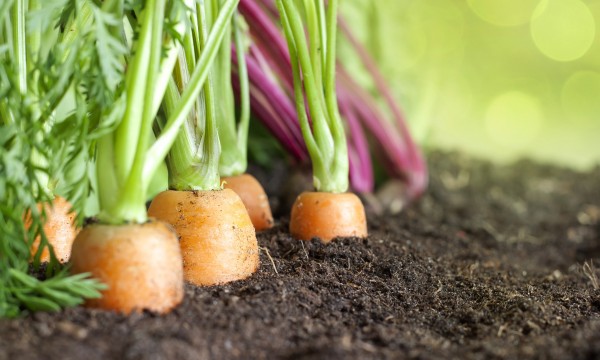You are what you eat, so doesn’t it make sense to go organic with vegetable gardening in your backyard?
Organic gardening is gardening without the use of synthetic fertilizers or pesticides. If you already garden, then going organic will be easy. You don’t even need a backyard to garden, even if you want to grow vegetables. Container gardening is suitable for a wide variety of vegetation.
The basic principle of organic vegetable gardening is sustainability. Plant material is reused and returned to the soil in the form of compost. Everything added to the soil is organic, including fertilizers. Growing your own food is the healthiest option. You know exactly what’s been in the soil, plus you are able to harvest and eat at its peak ripeness.
Here are a few organic gardening tips to help you on every stage of the process:
Prepping the soil
As the foundation from which plants grow, healthy soil is the most important starting point. Soil requires the proper balance of organic matter, clay and sand. Increase the organic matter of your soil’s content by regularly mixing in compost, lawn clippings or leaves. A couple of weeks prior to planting new seeds, add compost and give the bed a good rake to loosen and aerate the soil.
Planting
Now that you’ve invested the time to increase the soil composition, it’s time to plant. Here are some things to keep in mind before putting anything in the ground:
- Decide what foods to plant based on what you like to eat.
- Garden size will be the biggest factor in how much space you have to plant, but there are other factors to consider. Do you want enough to eat and freeze for later? How many people do you hope to feed?
- Look for plants that are compatible with your specific regional and local conditions. These will be more likely to grow without a lot of interference from you.
- Make sure plants are located in the right balance of sun and shade for their particular needs.
- Climate and your local weather conditions will determine when you can plant.
- When you’re buying seedlings, look for organic plants raised without chemical fertilizers and pesticides. Garden clubs and farmers markets are good sources for plants native to your area.
- Depending on your geography, some plants, like tomatoes, may need to start indoors from seeds.
Pests
The great outdoors can come with pests such as weeds and insects, but healthy plants are less likely to suffer from insect infestation. If you do get pests, here are some ways to deal with them:
- Introduce natural predators that eat other insects (ladybugs, toads, birds) or organic deterrents like hot pepper sprays.
- Water in the mornings to avoid mildew growth.
- Pull weeds out regularly.
- Keep weeds at bay by maintaining a two-inch layer of mulch on top of your soil. This prevents sunlight from reaching the weed seeds and protects the soil.
These tips should help you on your way to having an organic vegetable garden. There’s nothing more satisfying than feeding your family with a bounty of organic vegetables you grew in your very own garden.









